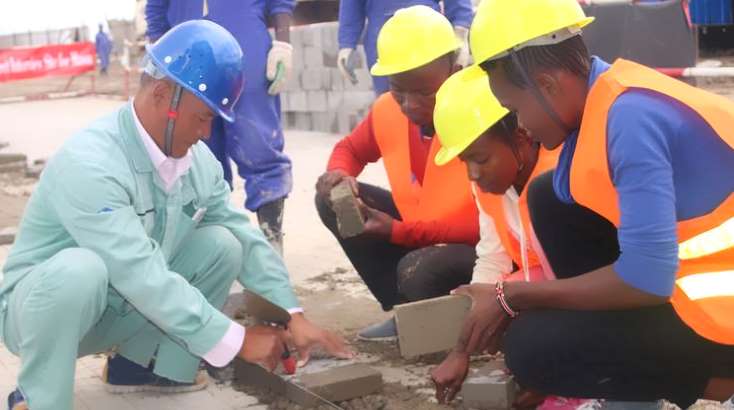Industry News
Uproar as Chinese Tighten Grip on Kenya Projects
Locals are being left out in the tendering of public infrastructure deals.

The growing dominance of Chinese multinationals in the Kenyan construction industry has upset local contractors who now accuse the government of favouritism towards foreigners.
The Roads and Civil Engineering Contractors Association (Raceca) recently complained that able local contractors are increasingly being left out in the tendering of public infrastructure deals – concerns that have been restated by the African Development Bank (AfDB).
Raceca chairman Gehlot Kishan termed the Chinese dominance in government projects as a “glaring bias” that could undermine Kenya’s economic growth since the majority of funds invested in the projects are not spent in the country.
Statistics show that in 2018, the World Bank and the AfDB financed Kenyan projects to the tune of Sh1.3 trillion – with a huge share of the funds being spent on roads.
According to AfDB regional director Gabriel Negatu, the financier is now concerned that the majority of these funds end up in the accounts of foreign construction companies.
“We are concerned that Kenyan contractors are not getting enough of it. We have no objection if the government comes to us and says a percentage is given to local contractors,” he said.
Since 2003, when then President Mwai Kibaki moved to strengthen trade relations between Kenya and China, a host of Chinese companies have set up bases in Nairobi from where they undertake big-ticket projects on behalf of the Kenyan government.
As a result, most indigenous contractors have now been confined to undertaking small projects in villages. Others have resorted to forming consortia with Indian and European multinationals when bidding for big-ticket government tenders.
Even then, Chinese firms still have an upper hand as they often enjoy pre-qualification status tied to the funding of the projects.
But even with the current discontentment, many experts agree that Chinese firms hold a technical and financial edge over local contractors.
“Most foreign companies have an edge over local companies because their rates of finance are much lower, at 3-4 per cent versus 17-18 per cent for local contractors,” an industry insider told Construction Kenya in a past interview.
RELATED: Chinese Firms Now Building Mega Churches in Kenya
Transport and Infrastructure Cabinet Secretary James Macharia has on several occasions defended the government’s decision to award tenders to Chinese contractors, saying poor workmanship by local builders had led to the influx of foreign contractors.
Ordinary Kenyans too have over the years hailed Chinese companies for the quality of their work and the speed at which they deliver projects.
“Chinese firms’ skilled workmanship and timeous execution of projects have won the respect of many Kenyans,” says John Mwangi, a regular user of the Chinese-built Thika Road.
However, local contractors insist that their powerlessness is not due to Chinese firms’ competitive edge but rather due to China’s well-lined purses and arm-twisting stipulations that have favoured Chinese multinationals.
In April 2013, Raceca moved to court seeking to have Chinese and other foreign contractors barred from handling government-funded road projects.
The contractors accused the State of setting a Sh500 million ceiling for tenders to be awarded exclusively to local firms yet they could handle projects exceeding Sh5 billion.
It was later decided that at least 30 per cent of the monetary value of every project should go to locals through joint ventures or sub-contracting.
However, the guidelines to effect minimum participation for local firms have not yielded much fruit since most Chinese companies have established Kenyan subsidiaries through which they undertake projects in the country.
Some of the most prominent Chinese companies in the local construction scene include China Wu Yi, Sinohydro Corporation, and China Communication Construction Company.
The multinationals have undertaken some of the largest infrastructure projects in Kenya’s history, including the Mombasa-Nairobi standard gauge railway; Thika highway; Dongo Kundu bypass in Mombasa; as well as Northern, Eastern, and Southern bypasses in Nairobi.














